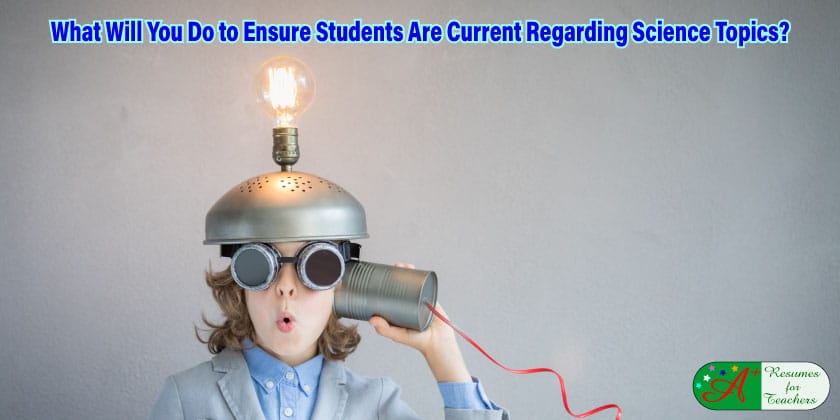Do you know how to answer this difficult teacher interview question: “What will you do to ensure students are current on science topics?”
The response you give to the job interview question must be truthful and relevant to the position. The response you provide needs to show value to the school district.
The following could be a possible answer, or it may provide ideas for you to tailor your response.
It’s critical not to teach from the textbook. If you only teach from the textbook, learning can be very dry for students, and the subject matter can be more difficult to comprehend.
The traditional way of teaching students science has always entailed lecture format with reading from a textbook followed by practice and exercises from the textbook. The drawback to using the traditional strategy is that it does not engage students in their learning if it is the only method. Instead, it encourages rote memorization and note-taking rather than excitement about the world of science.
Using additional resources to supplement textbook learning is vital to optimizing student learning. It is essential students are engaged and can participate in hands-on activities to develop their science skills and knowledge.
To this end, I will supplement textbook learning with hands-on experiments, educational videos, science websites and software, simulations, research journals, guest speakers, and current events. Additionally, I will incorporate other teaching methods such as peer learning, role-playing, and real-life scenarios in my classroom to create an inquiry-based instructional environment.
Students should be encouraged to openly discuss science concepts, ask questions about the material, and work in cooperative learning groups to learn new information. Having students work together to discover how a hurricane is formed, how a human eye works, or how the force of gravity works allows students to discover and work with these phenomena themselves instead of merely reading about them in a textbook.
Tying these concepts to current events like recent storm systems, space expeditions, or the microwave in their home, students will make connections between science concepts and things happening in their lives.
There is follow-up work to check for understanding after students have finished hands-on activities. An assessment can come in the form of a question and answer session with the teacher, exercise questions, or students writing a report that details the experiments and their conclusions.


